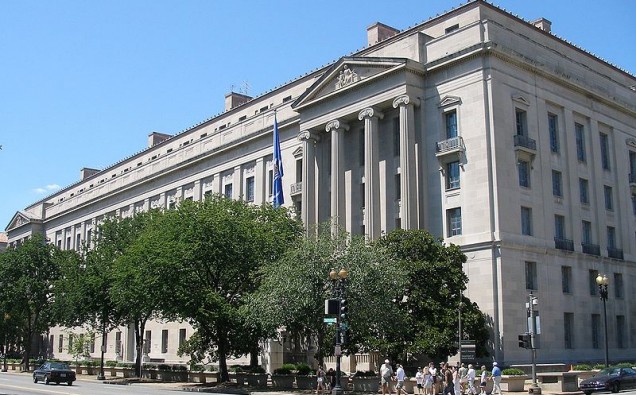
U.S. prosecutors, worried over anti-Muslim backlash after the terrorist attacks in San Bernardino, Brussels and Paris, have launched a nationwide drive to combat religious discrimination, saying intolerance has no place in the United States.
The move by the U.S. Justice Department to join forces with local law enforcement and community leaders for a series of events around the country comes after incidents targeting mosques and Islamic centers, and anti-Muslim rhetoric sounded by some of the Republican presidential candidates.
Starting April 12 through May 6, U.S. prosecutors will hold 14 events in California, Colorado, Connecticut, Idaho, Louisiana, Massachusetts, Michigan, Minnesota, New Jersey, Ohio and Utah, engaging law enforcement and community leaders to address discrimination, violence and harassment targeting people because of their faith and appearances.
“There is no place for intolerance in our country,” Attorney General Loretta E. Lynch said in a statement. “The Department of Justice is determined to uphold the fundamental principle that all Americans should be free from violence and protected from hatred no matter who they are, what they look like, or where they’re from.”
Trigger to this new initiative by the Justice Department to tone down anti-Muslim criticism is a series of incidents happening during the past several months in which Muslims, and those perceived to be Muslims, and South Asians have been targeted for harassment and violence.
Listing such incidents, the Justice Department said a Connecticut man pleaded guilty to firing a high-powered rifle at a mosque; a Florida man pleaded guilty to threatening to firebomb two mosques and shoot their congregants; a former Missouri man pleaded guilty to violating the civil rights of others by leading a conspiracy to deface a local Islamic center with graffiti and burn two copies of the Qur’an; and a New York man was sentenced to 13 months in prison for emailing death threats to the executive director of an Islamic advocacy group.
Going even further, there have been “unlawful barriers” to efforts to build places of worships by many communities around the country.
Citing an example, the statement said that in the last year, the Justice Department filed suit against Des Plaines, Illinois, over the city’s denial of rezoning to allow a Muslim congregation to use a vacant office building as a mosque.
The complaint alleged that the city treated the mosque less favorably than it has treated nonreligious assemblies, discriminated against the mosque based on religion and imposed a substantial burden on the mosque members’ religious exercise without justification.
The Justice Department also closed its investigation into Norwalk, Connecticut, after the city made changes to treat religious assemblies equally with nonreligious assemblies in five of its zoning districts.
The Department had opened an investigation of Norwalk’s zoning practices in 2012 in response to the city’s denial of a special use permit to the Al Madany Islamic Center to build a mosque on land it had bought in a residential zoning district, according to the statement.
According to the Justice Department, since September 11th, it has investigated over 1,000 incidents involving acts of violence, threats, assaults, vandalisms and arsons targeting Arab, Muslim, Sikh, and South Asians, and those perceived to be members of these groups.
“The Civil Rights Division and U.S Attorneys’ offices have brought prosecutions against more than 60 defendants in such cases, with 57 convictions to date,” according to the statement.
The anti-Muslim sentiments which gained after the terrorist attacks in San Bernardino, Paris and most recently in Brussels, have been aided by Republican presidential candidates Donald Trump, who has suggested banning entry of Muslims into the United States, and Texan Senator Ted Cruz who has spoken of surveillance of Muslim neighborhood.
For the Justice Department, backlash against Muslim, Arab, Sikh and South Asian Americans, can have a particularly harmful impact on education, employment and housing.
To counter that, the Educational Opportunities Section of the Civil Rights Division launched a new initiative in March with the U.S. Attorneys’ Offices to boost efforts aimed at combating religious discrimination in schools and other educational settings.
The events being organized by the Justice Department in its outreach efforts will, with the help of law enforcement partners and community leaders, defend the safety and dignity of all the people.
“These events underscore our ongoing commitment to safeguard the civil rights of every American,” said Attorney General Lynch.













